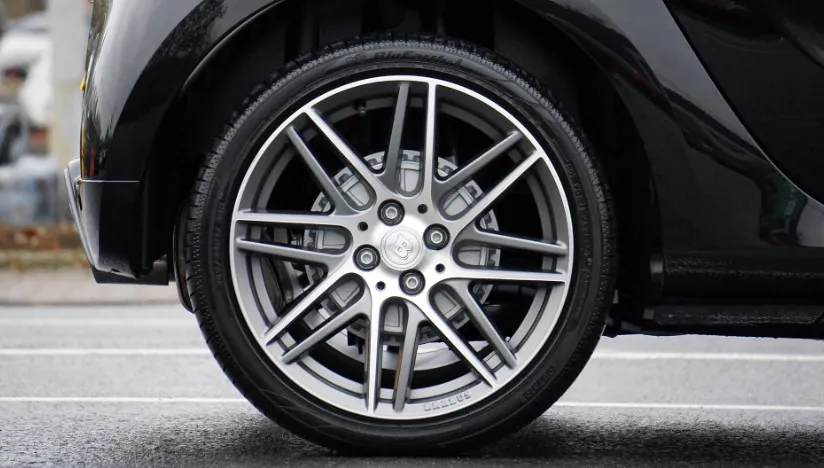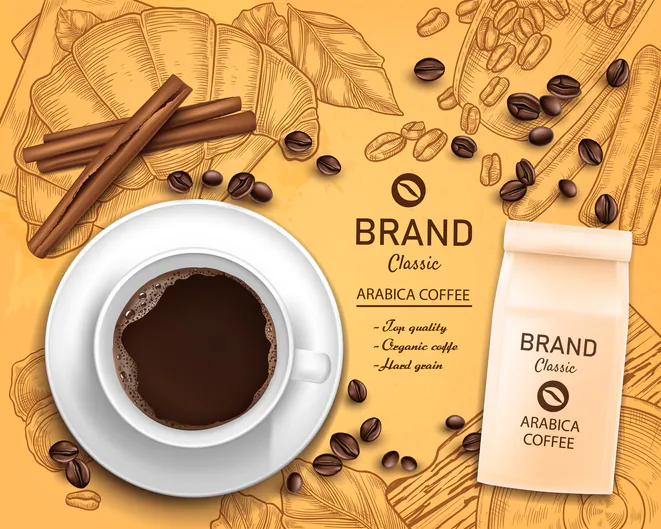The global rubber industry is expected to continue its moderate growth throughout 2020, as the world’s top 10 largest rubber products manufacturers and leading rubber producing countries are anticipated to continue contributing immense industry revenues over the near future. Despite some challenges caused by the economic downturns, the global natural rubber supply was still in short as of 2019, while as the demand in the downstream sectors such as automotive, construction and consumer products starts to rebound, the global rubber and rubber products market will have a huge potential to grow in the next few years.
This industry fact sheet is to assist industry professionals, investors, and people in general that are interested in gaining insights into the global rubber and rubber products industry including:
- How much is the global rubber market worth?
- What is the latest price of rubber?
- What are the key factors driving the rubber market growth?
- Who is the largest rubber producing country?
- Who are the top 10 largest rubber products manufacturers?
- What are the rubber market trends?
Bizvibe’s smart B2B marketplace solutions help buyers and suppliers in the global rubber industry to find and connect with each other, shorten sourcing and purchasing cycles, and maximise profit growth. Join today to see how BizVibe can help your business grow!
Global Rubber Industry Analysis
Due to its versatility and strong resistances, rubber is one of the most common materials that are widely used in various of industrial, commercial, and domestic applications. The largest end-user of rubber is the automotive parts industry, which uses immense amount of rubber to make car tires, hoses, pipes, gaskets, and other parts every year. According the recent market report from Fortune Business Insights, the global rubber market size was worth nearly US$41 billion in 2018 and it is projected to reach US$60.38 billion by 2026, representing an impressive CAGR of over 5.1% during the forecast period. Tire sector accounts for the largest share in the global rubber industry by applications, nearly 70% of the world rubber production is used to make car tires every year. Footwear sector, led by the top 10 largest footwear companies, is the second largest end-user for rubber.
Other end-user sectors are also posing a growing demand for rubber in 2020. The latest figures from International Rubber Study Group shows that the global demand for rubber was estimated to shrink by 1.5% year-on-year in 2019 to 28.7 million metric tons, while this figure is set to increase by 2.6% year-on-year in 2020. The recovery of the rubber demand is mainly driven by a 1.5% rise in demand from the tire sector and 4.3% growth in the non-tire sector. This upward trend is predicted to continue over the next year, with the growth rate likely to reach 2.8% year-on-year in 2021.
When it comes to rubber price, the average annual price of natural rubber reached a highest of US$4.82 per kg in 2011. Since then, the price dropped to an annual average of US$1.64 per kg in 2019. The latest rubber price from Singapore Commodity Exchange (the key global commodity exchanges for rubber) shows that the rubber price amounted US$1.5 in March 2020.
Top 10 Rubber Producing Countries in 2020
| Rank | Country | Avg rubber production per annul (1000 tons) |
| 1 | Thailand | 4,305 |
| 2 | Indonesia | 3,088 |
| 3 | Malaysia | 997 |
| 4 | India | 891 |
| 5 | China | 864 |
| 6 | Vietnam | 790 |
| 7 | Philippines | 548 |
| 8 | Côte d’Ivoire | 411 |
| 9 | Guatemala | 356 |
| 10 | Brazil | 186 |
The global natural rubber production totalled about 13.9 million metric tons in 2018. Thailand is the world’s largest rubber producing country with over 4.3 million metric tons rubber production per annual, representing nearly 36% of the world’s total natural rubber production. Almost 90% of Thailand’s rubber production is exported each year, making it also one of the largest rubber exporters in the world. Indonesia ranked on the second place in the chart of top 10 rubber producing countries. Indonesia’s annual rubber production could reach over 3 million metric tons, thanks to its 3.5 million hectares of rubber plantation area. Malaysia is in third place with over 0.9 million metric tons of rubber produced every year. Other world’s top 10 rubber producing countries in 2020 include China, Vietnam, Philippines, Côte d’Ivoire, Guatemala and Brazil.
Top 10 Largest Rubber Products Manufacturers
| Rank | Company | Headquarters | 2019 Revenue ($ billion) |
| 1 | Continental AG | Germany | 49.7 |
| 2 | Bridgestone Corp | Japan | 32.4 |
| 3 | Michelin SCA | France | 27.0 |
| 4 | Goodyear Tire & Rubber Co. | USA | 14.7 |
| 5 | Yokohama Rubber Company | Japan | 6.2 |
| 6 | Pirelli | Italy | 5.7 |
| 7 | Hankook Tire Co. | South Korea | 5.7 |
| 8 | Sumitomo Rubber Industries | Japan | 3.9 |
| 9 | Zhongce Rubber Group | China | 3.8 |
| 10 | Cheng Shin Rubber Industry Co. | China | 3.5 |
Continental AG
Continental is one of the world’s largest rubber tire manufacturers and best-selling tire brands. Continental was founded in 1871 as a rubber manufacturer, and evolved today as a multinational automotive parts company specializing manufacturing rubber tires and other car parts such as brake, electronics, powertrain and chassis components. Continental sells tires for automobiles, motorcycles, and bicycles worldwide under the Continental brand. It also operates through other brands including Uniroyal, Sime Tyres, Mabor, Matador, AmeriSteel, Novum, Simex, Astrum Blue, and TecnoTread etc.
Bridgestone Corp
Bridgestone Corporation is the world’s largest tire company and one of the largest rubber products manufacturers. Bridgestone Group offers wide range of rubber tires to customers around the world, such as tires for passenger cars, trucks and buses, aircraft, construction and mining vehicles, motorcycles, etc. In addition to tires, Bridgestone also manufactures diversified products for automotive parts, construction and electronic equipment sectors. The Bridgestone Group has about 180 manufacturing plants and R&D facilities in 25 countries and sells products in more than 150 countries worldwide.
Michelin SCA
Michelin is a French multinational tyre manufacturer based in Clermont-Ferrand, France. It is one of the largest rubber products manufacturers in the world. Apart from its own Michelin tire brand, it also owns the Kléber tyres company, Uniroyal-Goodrich Tire Company, SASCAR, Bookatable and Camso brands. Although manufacturing rubber tires is its core business, Michelin is also engaged in other industries such as mobility services, lifestyle products, engineering and services.
Goodyear Tire & Rubber Co.
Goodyear manufactures tires for automobiles, commercial trucks, light trucks, motorcycles, SUVs, race cars, airplanes, farm equipment and heavy earth-mover machinery. It is one of the top four rubber tire manufacturers along with Bridgestone, Michelin and Continental. The Company also manufactures and markets several lines of rubber products and rubber-related chemicals, making it one of the world’s top 10 rubber products manufacturers. In 2019, Goodyear generated $14.7 billion revenue.
Yokohama
The Yokohama Rubber Co. Ltd. is one of the world’s leading manufacturers of rubber products, offering an extensive range of tire, rubber and adhesive products. Established in 1917, Yokohama Rubber has expanded its worldwide business scope with a lineup of high-technology products meeting customer needs in the fields of automobiles, civil engineering, construction, marine engineering, aerospace and sporting goods. Yokohama Rubber employs 13,500 people worldwide.
Pirelli
Pirelli is another world’s leading rubber tire manufacturer based in Milan, Italy. Its core business including design, manufacturing and sales of tires for cars, motorcycles and bicycles. It is the 5th largest tire manufacturer behind Bridgestone, Michelin, Goodyear and Continental. In 2019, Pirelli’s total revenue reached $5.7 billion, making it one of the world’s largest rubber products manufacturers by revenue.
Hankook Tire Co.
Hankook Tire Co., Ltd. engages in the manufacture and sale of rubber tires for passenger cars, trucks, buses, industrial cars and others. The company also operates in General Machinery segment, which offers rubber products manufacturing equipment, molds, as well as provides equipment maintenance services in rubber tire industry. The company is headquartered in Seoul, South Korea. Hankook’s total revenue amounted about $5.7 billion in 2019.
Sumitomo Rubber Industries
Sumitomo is a world leading manufacturer for rubber tires, industrial rubber products and sports equipment. Through its main DUNLOP and FALKEN brands, Sumitomo Rubber provides many types of tires for passenger cars, trucks, buses, motorcycles and other vehicles to customers throughout Japan and all over the world.
Zhongce Rubber Group
Zhongce Rubber Group Co., Ltd, headquartered in Hangzhou, China, is one of the top tire manufacturing companies in China and one of the largest rubber products manufacturers in the world. Its core business is manufacturing and selling automotive tires and other rubber products. Zhongce Rubber Group Co., Ltd. has over 8,330 employees across 21 locations in China. In 2019, its total revenue reached $3.8 billion
Cheng Shin Rubber Industry Co.
Cheng Shin Rubber Ind is one of the top 10 tire makers and the largest rubber products manufacturers in the world. It supplies rubber tires for cars, motorcycles and bicycles through its Maxxis brand. Its customers include major international auto companies, such as BMW, Ford Motor and Toyota Motor. The company has factories in Taiwan, China, Vietnam and Thailand.
Global Rubber Market Trends in the Future
One of the major rubber market trends that has been observed over the recent years is the rapid growing market share of synthetic rubber. Many end-user industries such as automotive parts, tires, footwear, packaging, and construction sectors are shifting their preferences from natural rubber to synthetic rubber. When compared with natural rubber, synthetic rubber possesses more superior properties, such as toughness, elasticity, high head resistance, and abrasion resistance. All these vital properties have resulted in the rapid inclination of consumers towards synthetic rubber from natural rubber. It is expected that such growing trend of using synthetic rubber for industrial and commercial applications will likely continue in the near future.
Join BizVibe, and discover thousands of world’s leading rubber and rubber products suppliers and buyers today!



